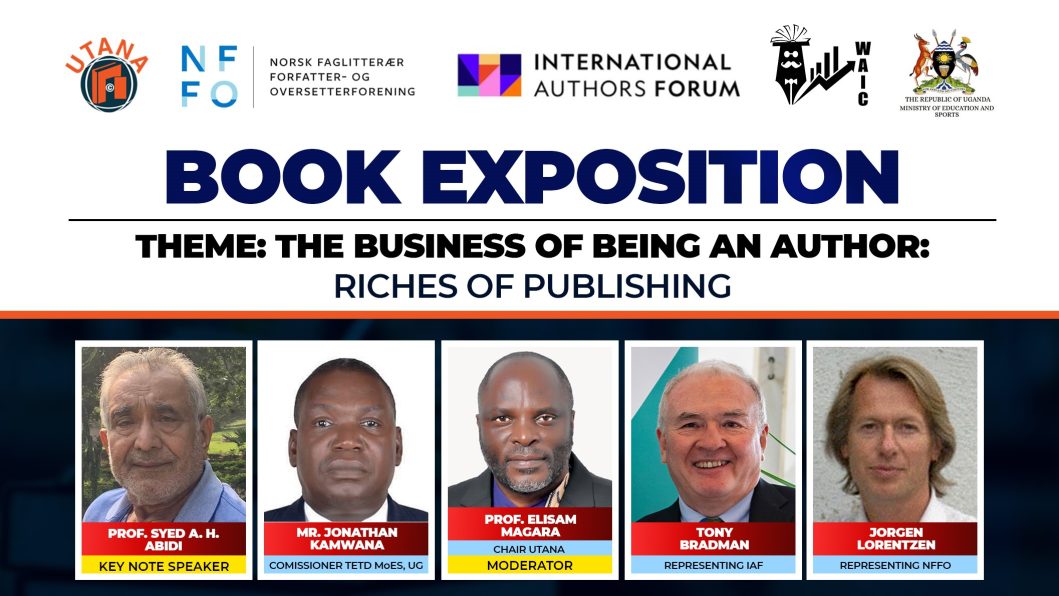Following last year’s seminar, the International Authors Forum supported the hybrid seminar organised by the Uganda Textbook-Academic and Non-Fiction Authors’ Association (UTANA) on the “The Business of Being an Author”. The Norwegian Association of Non-Fiction and Translators (NFFO), the Ugandan Ministry of Education and Sports, and the Writers-Authors Investment Club (WAIC), supported the event. The discussion focussed on how authors can nurture knowledge and confidence in their writing, as well as understand book production to ensure their work reaches the appropriate audience. Professor Elisam Magara, UTANA Chairman and Professor at Makerere University, hosted the event. Professor Syed Abidi (Chairman Kampala University Council) was the keynote speaker, accompanied by Jørgen Lorentzen (Member International Committee, NFFO), and Tony Bradman (Chair at Authors’ Licensing and Collecting Society).
Professor Abidi outlined the struggle in the development of the African book industry, after working in the sector for over 50 years. Until 25 years ago, 95% of books in African libraries were imported from abroad because it was more beneficial for African writers to publish their books through western publishers. Professor Abidi supported the development of the African book industry by editing books and organising events with authors to raise awareness of the wider publishing industry. He stated that his love and passion for this field were what motivated him to fight for development of the African publishing sector.
In addition, he discussed the arrival of the digital market and its impact on the progress of the African book industry. He pointed out that, despite the challenges posed by the introduction of digital books, traditionally printed books continue to exist, and book distributors are profiting more because of increased demand.
Jørgen Lorentzen, author and professor at the University of Oslo, stressed the importance of the author-publisher relationship, which must be based on a standard contract and the author-reader relationship. Furthermore, he emphasised the potentially vulnerable position of writers when negotiating with publishers and protecting their rights; he highlighted the need to become stronger by joining author unions and organisations who can help them to negotiate.
He continued by discussing the Norwegian literary system, as literature is important not only as a cultural and commercial commodity, but also as a carrier of the national language. Lorentzen stressed the need for support from the State through an active book policy.
He concluded by mentioning a successful schoolbook development project that has been in place in Malawi, serving 82 secondary schools there and publishing 16 supplementary textbooks, originally written by Malawian writers. The initiative has reached significant objectives like the growth of qualified Malawian publishers and authors; the use of standard contacts for local authors; and the development of local printing.
Tony Bradman from ALCS explained that being a freelance writer is a business. Every experience that authors encounter along the way helps them become better writers and have a greater understanding of the entire process. He underlined authors must combine their love of reading and writing with the confidence that they will be fairly compensated for their work.
Tony agreed with Jørgen Lorentzen, that the life of an author is incredibly difficult and lonely. What makes it exceptional is that despite feeling alone, authors tend to be engaged in their specific communities and actively support one another by joining organisations that fight for their rights, like ALCS.
Tony pointed out the key role writing plays in the preservation of lesser spoken languages. Although he is an English native speaker, he has always been supportive of countries that promote their languages, culture and diversity as equally important values in the creative industry.
You can watch the full discussion here.

